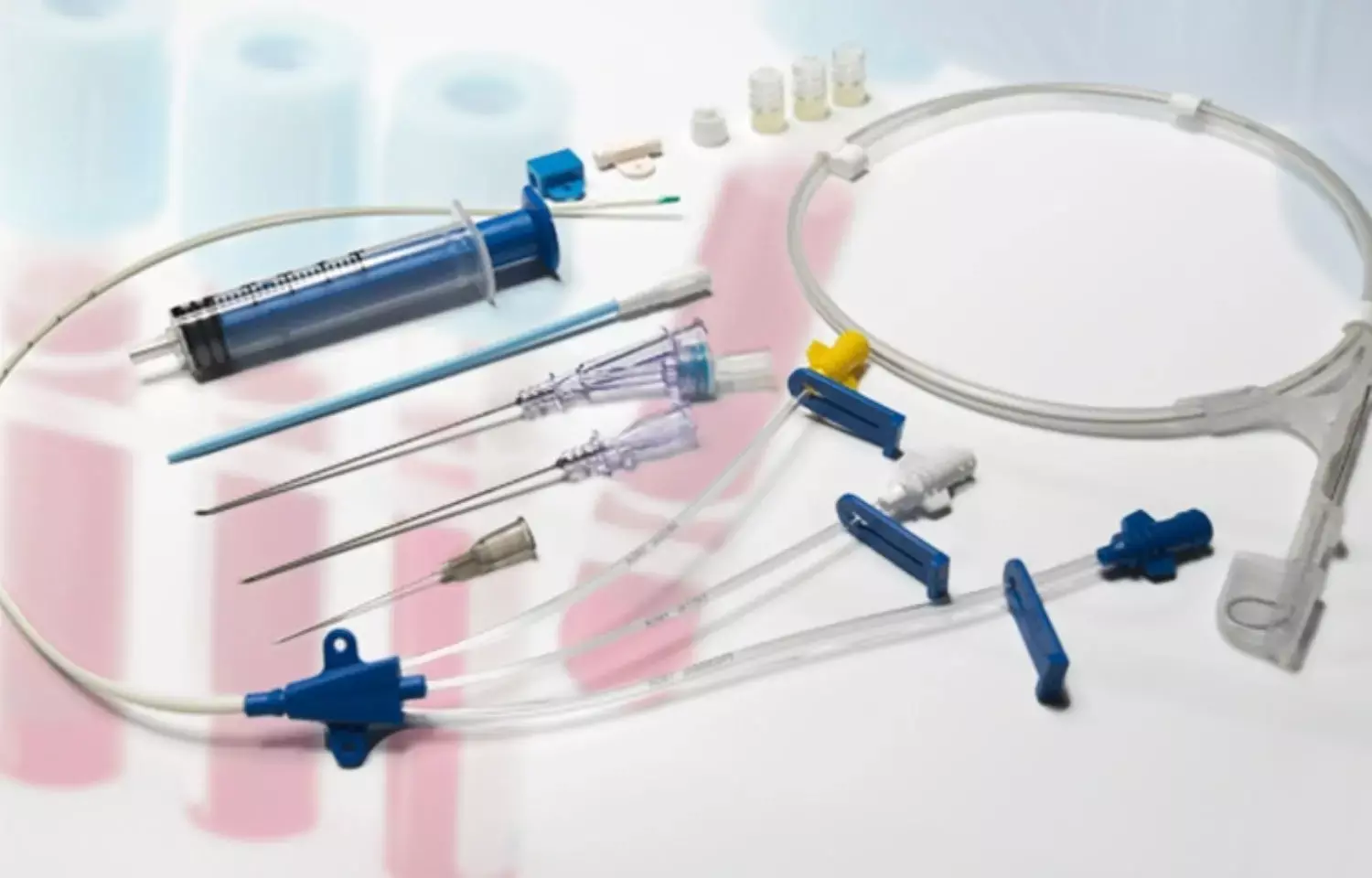- Home
- Medical news & Guidelines
- Anesthesiology
- Cardiology and CTVS
- Critical Care
- Dentistry
- Dermatology
- Diabetes and Endocrinology
- ENT
- Gastroenterology
- Medicine
- Nephrology
- Neurology
- Obstretics-Gynaecology
- Oncology
- Ophthalmology
- Orthopaedics
- Pediatrics-Neonatology
- Psychiatry
- Pulmonology
- Radiology
- Surgery
- Urology
- Laboratory Medicine
- Diet
- Nursing
- Paramedical
- Physiotherapy
- Health news
- Fact Check
- Bone Health Fact Check
- Brain Health Fact Check
- Cancer Related Fact Check
- Child Care Fact Check
- Dental and oral health fact check
- Diabetes and metabolic health fact check
- Diet and Nutrition Fact Check
- Eye and ENT Care Fact Check
- Fitness fact check
- Gut health fact check
- Heart health fact check
- Kidney health fact check
- Medical education fact check
- Men's health fact check
- Respiratory fact check
- Skin and hair care fact check
- Vaccine and Immunization fact check
- Women's health fact check
- AYUSH
- State News
- Andaman and Nicobar Islands
- Andhra Pradesh
- Arunachal Pradesh
- Assam
- Bihar
- Chandigarh
- Chattisgarh
- Dadra and Nagar Haveli
- Daman and Diu
- Delhi
- Goa
- Gujarat
- Haryana
- Himachal Pradesh
- Jammu & Kashmir
- Jharkhand
- Karnataka
- Kerala
- Ladakh
- Lakshadweep
- Madhya Pradesh
- Maharashtra
- Manipur
- Meghalaya
- Mizoram
- Nagaland
- Odisha
- Puducherry
- Punjab
- Rajasthan
- Sikkim
- Tamil Nadu
- Telangana
- Tripura
- Uttar Pradesh
- Uttrakhand
- West Bengal
- Medical Education
- Industry
One week of antibiotic course good enough against enterococcus-related bacteremia: Study

Italy: A new study found that early removal of the central Line and a 7-day course of antibiotics was effective and safe treatment strategy in uncomplicated enterococcal central line-associated bloodstream infections (CLABSIs). The article was published in the European Journal of Clinical Microbiology & Infectious Diseases.
Central lines, also known as CVCs (Central venous catheters), are commonly used to provide fluids, medications, or blood, and can also be utilized for quick medical tests in patients. Central line insertion is a common and often, necessary procedure for the care of critically ill patients. A central line-associated bloodstream infection (CLABSI) is a serious infection that occurs when germs (usually bacteria or viruses) enter the bloodstream through the central line and is a highly prevalent problem in ICU patients.
Enterococcus species are the third most common organisms causing central line-associated bloodstream infections (CLABSIs). Removal of the catheter and systemic antibiotic for 7-14days is the treatment guidelines set by the Infectious Diseases Society of America for uncomplicated central line-associated bloodstream infections (CLABSIs). However, the management strategy is not well defined for Enterococcus-related bacteremia, due to a lack of data.
Rosselli Del Turco, Policlinico Sant'Orsola-Malpighi, IRCCS Sant'Orsola, Italy, and colleagues conducted a study to assess the appropriate treatment duration for enterococcal central line-associated bloodstream infections (CLABSIs).
For the study, researchers enrolled 113 patients with monomicrobial enterococcal CLABSI, of whom 59% were male, the median age was 64 (SD ± 15) and the median Charlson's index score was 5 (IQR 3–8). Enterococcus faecalis and Enterococcus faecium were found in 51% and 44% of cases, respectively. Those with infective endocarditis and non-survivors at least 7 days from index blood culture (BC) were excluded. The primary endpoint was 30-day mortality.
Key observations made from the study data,
• The median treatment duration was 11 days, and 32% of patients (n = 36) received ≤ 7 days.
• Characteristics of patients receiving more or less than 7 days of treatment were similar.
• The central line was removed in 82% (n = 93) of cases within a median of 3 days.
• At both uni- and multivariate analysis, duration of antibiotic treatment > 7 days was not associated with 30-day mortality [HR- 0.41] even after adjustment with propensity score [HR-0.47]
The authors conclude that a 7-day course of antibiotics was safe and was not associated with 30-day mortality in non-complicated enterococcal central line-associated bloodstream infections (CLABSIs).
Reference:
Rosselli Del Turco E, Pasquini Z, Scolz K, Amedeo A, Beci G, Giglia M, Bussini L, Carvalho-Brugger S, Gutiérrez L, Tedeschi S, Garcia M, Ambretti S, Pericàs JM, Giannella M, Viale P, Bartoletti M. Treatment duration for central line-associated infection caused by Enterococcus spp.: a retrospective evaluation of a multicenter cohort. Eur J Clin Microbiol Infect Dis. 2022 Aug 1. doi: 10.1007/s10096-022-04481-w. Epub ahead of print. PMID: 35915273.
BDS
Dr. Hiral patel (BDS) has completed BDS from Gujarat University, Baroda. She has worked in private dental steup for 8years and is currently a consulting general dentist in mumbai. She has recently completed her advanced PG diploma in clinical research and pharmacovigilance. She is passionate about writing and loves to read, analyses and write informative medical content for readers. She can be contacted at editorial@medicaldialogues.in.
Dr Kamal Kant Kohli-MBBS, DTCD- a chest specialist with more than 30 years of practice and a flair for writing clinical articles, Dr Kamal Kant Kohli joined Medical Dialogues as a Chief Editor of Medical News. Besides writing articles, as an editor, he proofreads and verifies all the medical content published on Medical Dialogues including those coming from journals, studies,medical conferences,guidelines etc. Email: drkohli@medicaldialogues.in. Contact no. 011-43720751


